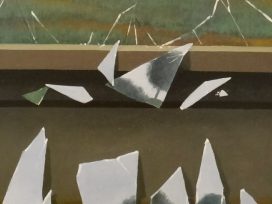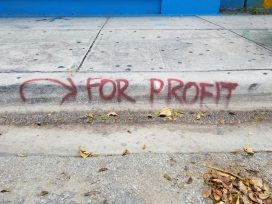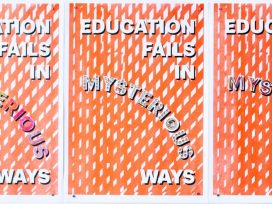What makes a humanist kill?
Injustice is the universally understood common denominator that connects soldiers and liberals in Ukraine. With the war effort accelerating to the use of long-range missiles on Russian territory, a personal account of swapping aid provision for firearms explains the decision to fight, proving how contemplation never ceases.
I volunteered for the Armed Forces of Ukraine on 24 February 2022, the first day of Russia’s full-scale invasion of my country.
Before that I had spent many years, beginning in 2014, providing humanitarian aid to civilian war victims in Ukraine’s east. Then I worked for an international NGO that dealt with issues of negotiation, dialogue and peaceful resolution. My pacifist views and humanist ideals were no secret.
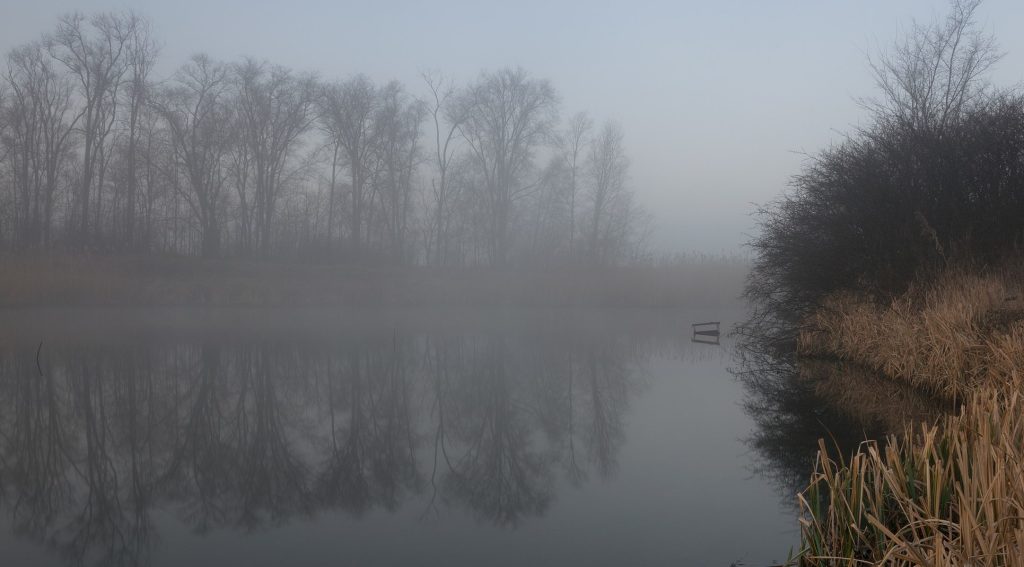
Entomological reserve in Donetsk Oblast, Ukraine. Image by Anton Marinyuk via Wikimedia Commons
I still maintain friendships with many of the foreigners I met in those years. They are quite familiar with my character, principles and convictions. So they were genuinely surprised when this peacemaker suddenly became a soldier. ‘How did that happen?’ they wondered. ‘Why?’
My dear friends from Switzerland, Australia, the US, the UK, Germany, France and other countries, in those crazy days of 2022, I was far more surprised by something else:
WHY AM I NOT ALONE? WHY ARE THERE SO MANY OF US?
**
You must remember the long lines of volunteers outside the Ukrainian army recruiting offices at the start of the full-scale invasion. I was surprised to see so many familiar faces in line. Civic activists, human rights advocates, altruists, artists, writers, scholars… These people were well-educated, empathic and upstanding. They were intellectuals for sure, proponents of dialogue and decidedly against violence. Like me, these people were standing in line to volunteer for the infantry and take up arms.
I defended the trenches with an anti-tank grenade launcher. While Lesia Lytvynova — the founder of a well-known charitable foundation, who had spent years aiding refugees, people with cancer and children with serious illnesses — was serving in the same battalion. She has been and still is a model of goodness and compassion. Her dedication and efforts affirmed the value of each and every human life…
…and now, as an army sapper, with equal dedication and effort, she was mining the approaches to our positions and demining the routes for our assault groups preparing to attack the enemy.
She and I were holding the defensive line, allowing the troops just behind to retreat from partially surrounded Lysychansk. Among them was my old friend, historian and activist Stanislav Fedorchuk. He had devoted his life to researching and recovering the historical memory of the Ukrainian people, which was destroyed under Soviet dictatorship. This stereotypical bookworm, who had spent his life in archives and libraries, was now setting up river crossings along the frontline to get his brothers-in-arms out of encirclement.
Prominent human rights activist, Maksym Butkevych, had dedicated his life to defending human rights. But he became an officer in an artillery unit. We both ended up in a prison in occupied Luhansk when I was captured in battle in early summer 2022.
This is what I think should surprise you the most: people with no military experience whatsoever and opposed to any kind of violence suddenly joined the army en masse and learned how to fight in a matter of days.
Has anything like this ever happened before?
**
Yes, in fact, it has. And not that long ago. Just nine years before this barbaric invasion of Ukraine by the Russian army.
In 2013, at the end of November, Ukraine’s then-president, Viktor Yanukovych, suddenly announced that he was abandoning the European course of his foreign policy. Those citizens who disagreed launched peaceful protests in the centre of the capital city. The demonstrations were not that large. European integration remained a matter of little importance to most Ukrainian citizens. There were only a few hundred protesters maintaining a continuous presence on Kyiv’s central square. Students and young people formed the core of this movement.
Young people did not want Moscow making decisions about our past and our future again. Young people did not want a return to Soviet ways. Young people did not want to live in poverty, even if it is stable and calm.
Young people wanted Europe. The great big open world. Opportunities. Visa-free travel. To study in the best universities. Interesting jobs in a free, competitive market. Real freedom.
Yanukovych was the president then, but he was trying with all his might to become a dictator. He decided to use force to suppress the protests. Units specially formed for this purpose, together with local mafia thugs, brutally dispersed the demonstrations in Kyiv.
The next day there were a million protestors on the capital’s streets. These were the same citizens who had no interest in political discussions. Millions of others took to the squares of Ukraine’s other large cities.
I was among those who took to the streets of Donetsk; today this large city in the country’s east is occupied by pro-Russian separatists.
At that time, I too was completely apolitical. Having worked in the media for several years, I was utterly disenchanted with politics and politicians. I did not believe in political ideas, for as a professional I could see the machinations, shadowy interests, and competition for power and money they masked.
But I went out to protest anyway — with a very simple message. I’ll be damned if I can tell who is right in these delicate matters of foreign policy. But this I know for sure: I do not want violence to become the norm in our political life. I have two children. They will be students one day. And I cannot allow for a situation where in the course of time they could be treated this way, even if I will be in complete disagreement with whatever ideas my kids are defending on the streets and squares.
It was surprising to find myself standing side-by-side with so many friends whom I never would have expected to see there. Local business owners. Workers from the Donetsk coal mines. White-collar workers from corporate offices.
The confrontation between the authorities and the protesters continued to grow more intense. In the capital, there were skirmishes between police and activists, who had constructed barricades in the city centre. At some point, the civilian protesters were joined by veterans, in particular those who had fought in Afghanistan or participated in Ukrainian peacekeeping missions. They introduced a semi-military form of organization into the protest movement. The haphazard crowds were organized into ‘hundreds’. Each ‘hundred’ was assigned a position on the defensive lines. The ‘Afghan hundred’ was, of course, the most disciplined, prepared and professional unit.
In addition to the veterans, active military members joined the protesters.
The police were incapable of controlling nationwide public protests. So Yanukovych ordered the Armed Forces of Ukraine to suppress the uprising.
The army did not fulfil this order. Commanders replied that Ukrainian soldiers swear an oath neither to the president nor even to the state. In Ukraine, a recruit embarking on military service swears an oath of loyalty to the Ukrainian people. Taking up arms against these people is a violation of the warrior’s oath and a dishonour.
Military unit commanders faced extreme pressure from the country’s political leadership. Nevertheless, the soldiers stayed in their barracks, weapons remained in the armouries and military vehicles never left their depots.
Everyone remembers the culmination of this story. The president ordered the special riot police units loyal to him to open fire on the unarmed protesters. This is how the ‘Heavenly Hundred’ appeared: all the activists killed in the protest movement are its eternal members. Even this, however, did not stop the Ukrainians. The peaceful citizens emerged victorious from their confrontation with the armed police forces and the dictatorship fell. Yanukovych, scared, fled the country to join his friend Vladimir Putin. While the latter launched a campaign of aggression against Ukraine that would go on for many years, gradually expanding to become the largest conventional war of the twenty-first century.
**
Something strange happened across a nine-year gap. First, soldiers and veterans came to the aid of civic activists. Then those activists signed up for the army, thus repaying the debt.
Let us ask ourselves: what could have triggered all these very different people, with their different worldviews, values, convictions?
Allow me to suggest an answer.
Injustice.
Injustice that was so shameless and unrestrained that it was utterly humiliating. It is wrong and unjust when a blatantly stronger entity tries to destroy a blatantly weaker one.
I spent my childhood in eastern Ukraine in the 1990s. After the Soviet Union collapsed, this industrial region suffered a terrible economic crisis. And social problems, like heavy drinking, prostitution, crime and street violence, all got worse in these difficult circumstances.
Criminal street gangs were the greatest evil, for they encroached on more than a stranger’s wallet. They trampled on human dignity. They stole other people’s property and delighted in their victims’ defencelessness. Yes, they said, you are smarter than us. You’ve studied for years and worked hard to become better and to make the money that’s in your pocket right now. But all that is worth shit against the brute force of a gang of hoodlums. Everything that belongs to you will become ours, and there is nothing you can do about it.
These types are loathed outside Ukraine too. The superheroes of American pop culture — Batman, Spiderman, etc. — all fought against street gangs. While American artists were drawing these superheroes in comic books, Ukrainian artists were suffering under the communist dictatorship. There are no superheroes in our twentieth century culture. In the critical moments of our history we’ve suddenly realized a basic truth: we have only ourselves to rely on to fight injustice. And nobody cares whether or not we are up to the task.
So we — activists, artists, philosophers, soldiers and veterans — have to become superheroes.
Our incredible sensitivity to injustice awakens our tenacity, the power of which amazes us and the entire world. First unarmed protesters force a dictator to flee the country in fear. Eight years later the not-so-big and not-so-strong army of this not-so-wealthy country forces the bloody retreat of an invading army that international experts had ranked as one of the most powerful in the world.
The secret is simple. We are the same kind of people as everybody else. But shameless, unrestrained injustice makes us go berserk.
**
I’ve been a soldier since the first day of Russia’s full-scale invasion and have spent two-and-a-half years in the army.
Take my word for it, justice is a topic soldiers love. We talk about it more than all the people fighting for human rights combined.
The first time I noticed this was right after the Ukrainian army’s first major victory in this war. We succeeded in thwarting Russia’s attack on Kyiv. Our commanders ordered us to leave the capital and head north to overtake the retreating enemy in a counterattack.
Military columns sped through the streets of the capital. Looking out the windows of our buses, we said goodbye to the city.
In the soft, bright April sun, it looked as if there were no war in Kyiv, nor had there ever been. The streets were filled with carefree young people. Guys with energy drinks in their hands and airpods in their ears stood flirting with girls. While the girls flirted back, filming it all for their stories on Instagram.
We infantry soldiers spent the entire journey arguing whether it was fair that right after one battle we were heading to the next while other people were simply enjoying their lives.
And we would continue to argue about justice often.
You know, for all our debates, we never did get to the bottom of it.
**
We are ready to die for justice, but we don’t actually know what it is.
It’s like air to us. It’s not something we constantly think about and most of us don’t even know precisely what it is. How many of you, without using Wikipedia, could name the exact chemical composition of the gaseous mixture that keeps us alive?
And yet we feel a lack of air immediately. We gasp. We start fighting like crazy to stay alive. And without a doubt we will kill whomever is strangling us and obstructing our breathing.
The same principle applies to Ukrainians when it comes to justice. We don’t know what it is. But we instantly feel when it’s missing. And we are prepared to fight, kill and die to restore it. For we do not know what justice is. But we can feel that life is impossible without it. Just like life without air.
This article first appeared in London Ukrainian Review on 31 October 2024.
Published 25 November 2024
Original in Ukrainian
Translated by
Larissa Babij
First published by London Ukrainian Review (31 October 2024)
Contributed by London Ukrainian Review / Institute for Human Sciences (IWM) © Yevhen Shybalov / London Ukrainian Review / Institute for Human Sciences (IWM) / Eurozine
PDF/PRINTIn collaboration with
In focal points
Newsletter
Subscribe to know what’s worth thinking about.
Related Articles
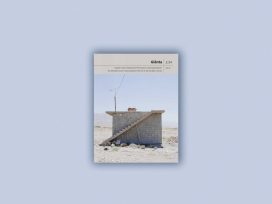
Nationless identity
Glänta 2/2024
On the past, present and future of Kurdistan: rethinking power structures; statelessness in a world of states; and Kurdistan as a war laboratory.

The sharp drop in support for Ukraine in Italy has less to do with the traditionally Russia-friendly economic policy of the Italian right, and more with the anti-Americanism rooted in the political culture of the Italian left, which now articulates itself as pacifism.




